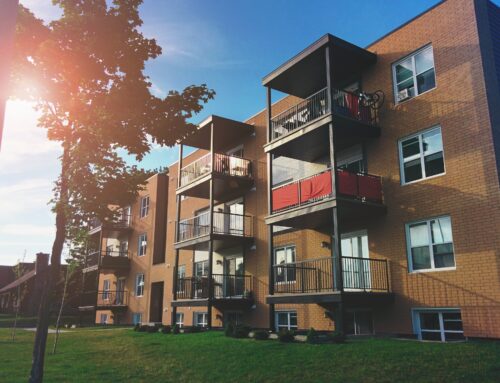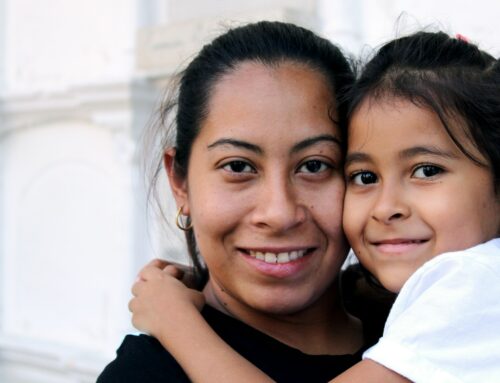Although Canada is primarily an English-speaking country with French as a secondary language, venture into the province of Québec and you’ll find that the predominant language is French. In fact, French is the sole provincial official language, meaning that services, legislation, business and commerce are all conducted first and foremost in French. (See our article on Language laws for businesses in Montreal and Quebec.) It also means that education, through both elementary and secondary schooling, must be in French, with a just few exceptions. Because of this, enrolling your children in an English-speaking school (they do exist in Québec!) is not as easy as you may have hoped.
What is Bill 101?
Bill 101 defines French as an official language in Québec. It was voted as a law in 1977 and encourages the use of French in public services. It states that education in Québec’s province-funded schools, both public and private must be given in French (a great majority of private schools are partly funded by the province). The study of English as a second language is encouraged, though. To attend an English-speaking school children must meet very specific criteria to apply.
There are three situations established by the Charter of the French Language that allow students to study in English:
1. Permanent certificate of eligibility
Parents can request a permanent certificate of eligibility for instruction in English for their children if they correspond to these conditions:
- A child has received the major part of their education in English in Canada AND at least one of their parents is a Canadian citizen
- A child’s siblings have received the major part of their education in English in Canada AND at least one of their parents is a Canadian citizen
- One of the child’s parents (who must be a Canadian citizen) received the major part of their elementary education in English in Canada
- One of the child’s parents attended school in Québec after the 26th August 1977, and could have been declared eligible for education in English at the time
2. Special authorization
Children can receive special authorization for English-speaking education if:
- A child has serious learning difficulties, whereby the use of English in their education could be of assistance to them and improve their learning
- It is decreed by the examining committee of the Ministry of Education, Recreation and Sports (Ministère de l’Éducation et de l’Enseignement supérieur) that a child is in a serious family or humanitarian situation, and requires education in English
3. Temporary authorization
Finally, it is also possible to receive temporary authorization for dependent children of:
- A foreign national, or a Canadian citizen from another province (or a permanent resident) who is living in Québec temporarily to work or to study
- A foreign civil servant or representative of an international organization or another country, temporarily posted in Québec
- A member of the Canadian Armed Forces temporarily posted in Québec
If the child is a dependent of a foreign guardian, the guardian or the child must have a Certificat d’Acceptation du Québec (CAQ), a work permit or a study permit (or in specific cases an exemption of those permits). Otherwise, the child or the guardian must be a Canadian citizen or permanent resident, or the child must accompany their guardian coming to work or study in Québec.
To obtain one of these exemptions, you will have to refer to the school board for the school in which you choose to enrol your children. The school board will give you the correct form and will supervise the whole process in order for you to get the exemption. When one of these exemptions is obtained, the registration process is the same for both English and French schools; you must contact the school board for registering your child at a school.
What else does Bill 101 do?
For all intents and purposes, Québec is a bilingual province, but Bill 101, the Charter of the French Language, defines French as the official language of Québec and Montreal. In addition to schools being taught predominantly in French, all business and commercial materials (catalogs, brochures, signs, food labels) must be in French as well. This may come as something of a surprise, especially for those moving to Canada from an English speaking country. An America entrepreneur or businessperson, for example, will have to prepare all their business communications in French, which could turn into a difficult and costly process if they are not properly prepared.
The idea, as expressed in the law, is that any citizen of Québec has the right be served in French. So if you’re preparing to send out a e-newsletter to all your clients in Québec, you’d better be sure that anything you say in English is also written in French, or you could face some serious legal repercussions.
Civil administration is also conducted primarily in French. This includes courts, parliaments and other assemblies. In the event that there is a discrepancy between a French law and an English law, for example, the French text will prevail. To hold political office in Québec, it is therefore essential for candidates to be fluent in French.
It is standard for health and public utility services to be provided in French. Generally, however, any of these services can also be made available in English.
The Importance of French Identity in Québec
The French Canadians are very proud of their French heritage, in fact there has been a strong and popular political movement aiming to separate Québec from the rest of Canada for several decades. Sometimes violent, but mostly peaceful, the Québec Sovereignty Movement succeeded in forcing a referendum on the ballot as recently as 1995. But the independence measure was narrowly defeated. The political party representing this position is the Parti Québécois, which continues to hold a minority in the provincial parliament.
Today, the likelihood of a sovereign nation of Québec seems as remote as ever, and Canada’s national political landscape appears quite tranquil, far more serene than the contentious state of politics exhibited by their southern neighbors. You might come across an occasional flyer or pamphlet advocating for Québec independence, maybe even a rare pro-separatist demonstration. But don’t expect to see fighting in the streets.
For most families moving to the Province of Québec, the French schooling policy is probably the most important issue they’ll have to face, as far as Bill 101 is concerned. Hopefully, this article has helped you to understand the rules a little better, and prepared you to integrate your children into the local schools, or to find English schooling options if that’s still your preference.
Additional Resources
For more information on schooling and family issues in Canada, continue to peruse our blog. You’ll find our article on Relocating With Children especially helpful.
Also, our Online Relocation Guides are loaded with valuable information for families and children moving to Canada. If you’re looking for all the answers in one place, the Guide will be your best solution.








Leave A Comment